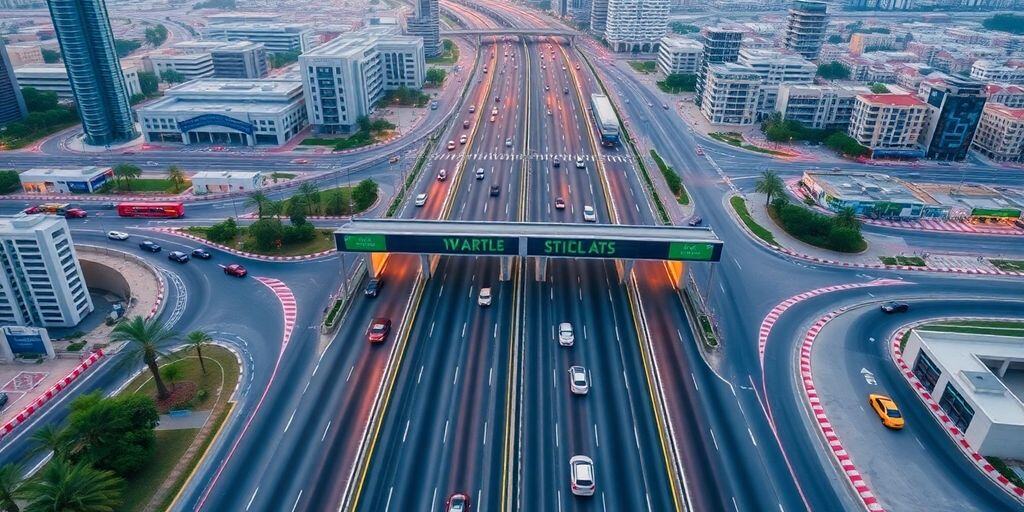Motorists in Dubai are now adjusting to an expanded toll system with the launch of two new Salik gates at Business Bay Crossing on Al Khail Road and Al Safa South on Sheikh Zayed Road. These new gates are intended to improve traffic flow, promote alternative routes, and support Dubai’s ongoing infrastructure enhancements.
Why Introduce New Toll Gates?
The rollout of these toll gates aligns with the completion of the Al Khail Road Development Project, which involved building five bridges and widening lanes in seven critical areas. This initiative aims to boost connectivity and alleviate congestion, particularly during peak traffic times.
Key Locations of the Toll Gates
Business Bay Crossing: Strategically located on Al Khail Road, this gate regulates traffic entering and exiting Dubai’s vibrant business district.
Al Safa South: Situated on Sheikh Zayed Road, this gate manages heavy commuter traffic, especially around residential and commercial areas.
Impact on Motorists and Traffic Flow
Reduced Congestion on Major Roads: The tolls are anticipated to redirect traffic to alternative routes, helping to ease congestion on Business Bay Crossing and Sheikh Zayed Road.
Cost Considerations for Motorists: While some drivers may incur higher daily costs, others might choose toll-free routes, helping to distribute traffic more evenly across the network.
Enhanced Road Safety: Improved traffic flow can result in fewer accidents and more efficient commutes in busy areas.
Future Implications
These new toll gates are part of Dubai’s continuous efforts to modernize its road infrastructure and promote efficient travel. As the city grows, such initiatives are essential to ensure that its infrastructure meets the demands of both residents and visitors.
Motorists are encouraged to plan their routes and consider alternative options to avoid unexpected delays. These changes represent a significant advancement in Dubai’s pursuit of smarter, more sustainable urban mobility.





